Latest News
03 March 2023
TU Delft scientists reveal molecular structure of bacterial gas vesicles
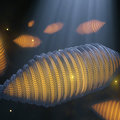
Similar in function to ballast tanks in submarines or fish bladders, many water-based bacteria use gas vesicles to regulate their floatability. In a publication in Cell, scientists from TU Delft now describe the molecular structure of these vesicles for the first time. These gas vesicles were also recently repurposed as contrast agents for ultrasound imaging.
02 March 2023
Accreditation for new Master’s Degree in Quantum Information Science & Technology
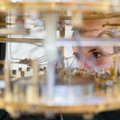
On 16 February the Netherlands-Flemish Accreditation Organisation (NVAO) accredited the Master's degree in Quantum Information Science & Technology (QIST). With this accreditation, the new programme can officially kick off in September 2023. The Master’s programme is a collaboration between TU Delft (AS, EEMCS and QuTech) and Leiden University.
28 February 2023
TU Delft presents the eight best Climate Action & Energy Papers

Record temperatures, floodings and melting sea ice: radical weather events are becoming more frequent and have a devastating effect on our planet and our lives. By accelerating the energy transition and climate action TU Delft, together with its partners, tries to prevent climate change and contain its consequences. With the election of the Best Climate & Energy Paper, TU Delft is highlighting a number of large and small innovations that contribute to this.
23 February 2023
Vici for Valeria Garbin, Simon Gröblacher and Atsushi Urakawa
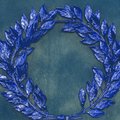
The Dutch Research Council (NWO) has awarded Delft researchers Valeria Garbin, Simon Gröblacher and Atsushi Urakawa a Vici grant of up to 1.5 million euros. This will enable the laureates to develop an innovative line of research and further expand their own research group for a period of five years. Vici is one of the largest personal scientific grants in the Netherlands and is aimed at advanced researchers.
20 February 2023
Advanced microscopy to understand life and fight disease
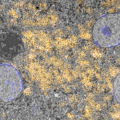
On 20 February, NL-BioImaging (NL-BI) received national funding of 25 million euro, of which 15 million by NWO. The funding supports the consortium in becoming the national advanced light microscopy infrastructure providing coordinated access to the Netherlands’ best imaging technology and analysis platforms. NL-BI is a multi-sited collaboration of all 18 Dutch universities, medical academic centres and research institutes.
20 February 2023
Creating chaos in battery to extend lifetime
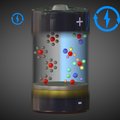
The electric car has made its entrance thanks to the advancement of batteries, and we need batteries to store renewable solar and wind energy until the moment when we need the energy. Currently, the most widely used battery for this purpose is the lithium-ion battery. Researchers from TU Delft now present a new breakthrough in Nature Communications and Advanced Materials that could further improve the life of these batteries.
16 February 2023
Investment in nuclear knowledge infrastructure
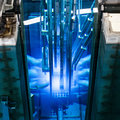
TU Delft has presented an integrated vision of the Netherlands' global position in the nuclear and radiation ecosystem. This ecosystem is a major and crucial contribution to the energy transition, effective healthcare and materials transition.
25 January 2023
Pushing the boundaries of ultrasound
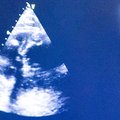
Physicist David Maresca has received a Chan Zuckerberg Initiative Dynamic Imaging grant to develop a next-generation medical ultrasound tool. While state-of-the-art ultrasound imaging, known to most as a baby’s first picture, can show our anatomy and organs, the new tool will be able to zoom in much further, all the way down to the level of the cells in our body.
18 January 2023
Nynke Dekker wins Physica Prize 2023
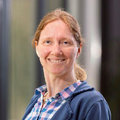
The Physica Prize 2023 has been awarded to Nynke Dekker, professor single molecule nanoscale biophysics at the Kavli Institute of Nanoscience at Delft Technical University. She has invented and developed innovative physical methods within molecular biology, which she applies to current and relevant issues in biology and medicine.
16 January 2023
Going abroad: two Delft researchers receive Rubicon grant
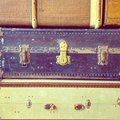
Two postdoctoral researchers from TU Delft have received a Rubicon grant from NWO, which enables them to gain research experience at a leading institute abroad for two years. The coveted grant was awarded to 15 researchers who recently received their PhDs in total.